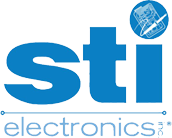This course utilizes the images in the IPC-A-600 document to provide visual accept/reject criteria examples for all three classes of bare board fabrication and inspection. The IPC-A-600, “The Acceptability of Printed Boards”, describes the preferred, acceptable, and nonconforming conditions that are either externally or internally observable on printed boards. The CSE program will familiarize the student with IPC-A-600 “Acceptability of Printed Boards” document to include Introduction and Cleanliness Testing, Externally Observable Characteristics, Internally Observable Characteristics and Miscellaneous Flexible and Rigid-Flex Printed Boards, and Metal Core and Flush Printed Boards.
Open book and closed book exams are required. Recertification is required every 2 years to maintain certification.
This program will greatly assist any company dedicated to providing quality training to the IPC-A-610 Acceptability Document. This training will familiarize the student with IPC-A-610 “Requirements and Acceptance for Electronic Assemblies” document to include the general requirements of the specification and related documents, the difference between the classes of product, and define the acceptance criteria for various conditions. An open book and closed book exam is required.
Recertification is required every 2 years to maintain certification.
CSEs are certified for 24 months and must attend a 16-hour recertification class to maintain their certification status. CSEs will have the opportunity to review the content of the standard in its current revision as well as discuss any clarification of intent resulting from Technical Committee activities.
Recertification is required every 2 years to maintain certification.
This is the 2 day recertification program for CSEs. This training program provides a detailed review of the IPC/WHMA-A-620 Requirements and Acceptance for Cable and Harness Assemblies and concludes with a qualifying examination. Recertification is required every 2 years to maintain certification.
This program provides a comprehensive standards expert certification that teaches inspection and assembly criteria for all three classes of cable and wire harness assembly. This training will familiarize the student with IPC/WHMA-A-620 “Requirements and Acceptance for Cable and Harness Assemblies” document to include the general requirements of the specification and related documents, the difference between the classes of product, and define the acceptance criteria for various conditions. An open book and closed book exam is required. Recertification is required every 2 years.
IPC has developed an 8-hour hands-on lab based on the IPC/WHMA-A-620’s acceptability requirements. This hands-on lab covers cable and harness fabrication from stripping and tinning of wires to crimping of contacts while reinforcing the acceptability requirements for all classes of product. Upon completion of this course the student will receive an IPC certificate of completion.
IPC/WHMA-A-620 Space addendum provides additional requirements over those published in the IPC/WHMA-A-620 to ensure the performance of cable and wire harness assemblies that must survive the vibration and thermal cyclic environments getting to and operating in space. Day 1 consists of Lecture and open book examination. Days 2-3 are workmanship training, demos and projects. Recertification is required every 2 years.
IPC/WHMA 620 Space Cert or Recert: Only CIS’s or CIT’s who have successfully completed the IPC/WHMA 620 Certification or Recertification Course can attend.
This program is for anyone needing to renew their existing IPC-7711/7721 CIS Certification. This is a hands-on course. The CIS class is modularized to allow you to choose only the modules needed. Module one is mandatory and consists of Common procedures. Modules 2-10 consist of; Wire Splicing Procedures, Conformal Coating, Through Hole component removal and installation, Chip and MELF removal and installation, Gull Wing removal and installation, J-lead removal and installation, BGA (Lecture only), Laminate Repair, and Circuit Repair. An open book exam is required after Module 1. Recertification is required every 2 years.
This program provides an in-depth look at the J-STD-001 document. The course reviews this document and helps students learn how to interpret the criteria. This program is modularized to allow for maximum flexibility in meeting individuals training needs. Module 1 is an introduction to the process requirements of J-STD-001, Module 2 focuses on wires and terminals, Module 3 covers PCB, Coating, Encapsulation and Staking, Module 4 emphasizes Through-Hole Technology, Module 5 emphasizes Surface Mount Technology and Module 6 focuses on Inspection, Inspection Methodology, and Process Control. Open book exams are required after each module. Modules 2, 4 and 5 include hands-on training. Recertification required every 2 years.
This program provides an in-depth look at the J-STD-001 document. The course reviews this document and helps students learn how to interpret the criteria. Section 1 is an introduction to the process requirements of J-STD-001, Section 2 focuses on wires and terminals, Section 3 covers PCB, Coating, Encapsulation and Staking, Section 4 emphasizes Through-Hole Technology, Section 5 emphasizes Surface Mount Technology and Section 6 focuses on Inspection, Inspection Methodology, and Process Control. Open book and closed book exams are. Sections 2, 4 and 5 include hands-on training. Recertification required every 2 years. CIT’s are qualified to teach Certified IPC Application Specialist (CIS) training and certification programs.

